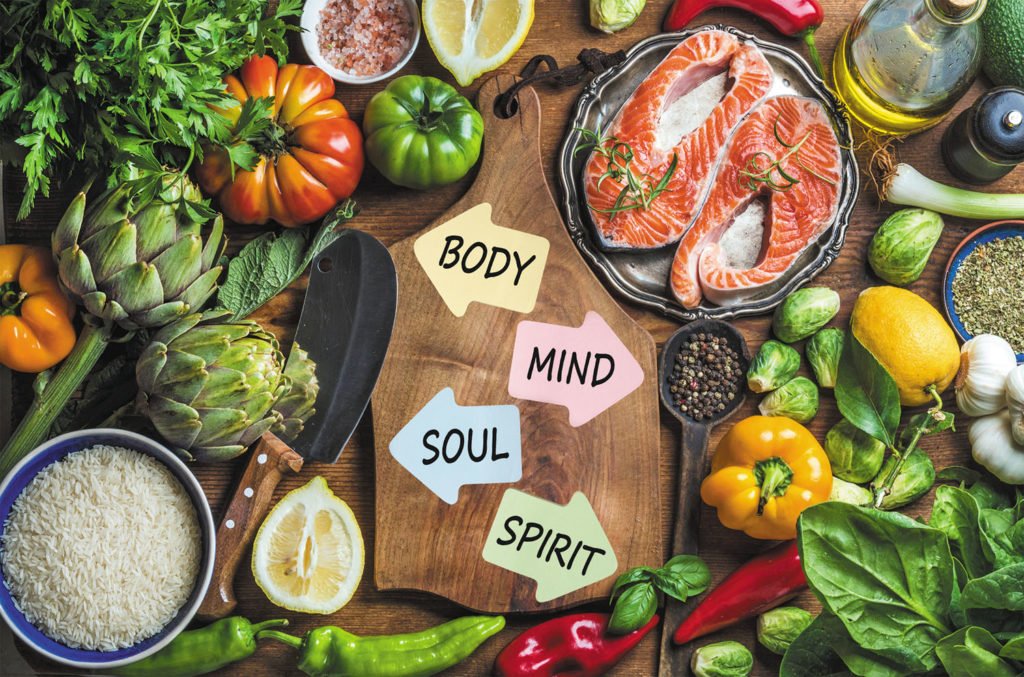Back to: PHYSICAL HEALTH EDUCATION JSS1
Welcome to class!
In today’s class, we will be talking about food, nutrition and health. Enjoy the class!
Food, Nutrition and Health

Nutrients are compounds in foods essential to life and health, providing us with energy, the building blocks for repair and growth and substances necessary to regulate chemical processes.
There are six major nutrients:
- Carbohydrates (CHO)
- Lipids (fats)
- Proteins
- Vitamins
- Minerals
- Water
Good nutrition is one of the keys to a healthy life. You can improve your health by keeping a balanced diet. You should eat foods that contain vitamins and minerals. This includes fruits, vegetables, whole grains, dairy, and a source of protein.
Elements of nutrition
These are carbohydrates, proteins, fats, vitamins, minerals, fibre and water. Everyone must consume these seven nutrients daily to help them build their bodies and maintain their health.
Nutritional deficiencies include:
- Beriberi: low levels of vitamin B1 (found in cereal husks)
- Ariboflavinosis: low levels of vitamin B2
- Pellagra: low levels of vitamin B3
- Paraesthesia: low levels of vitamin B5 leading to “pins and needles” feeling
- Biotin deficiency: low levels of vitamin B7, which can be common in pregnancy
- Night blindness: low levels of Vitamin A
- Vitamin K deficiency
There are six essential nutrients. Namely:
Vitamins:
- boosting the immune system
- helping prevent or delay certain cancers, such as prostate cancer
- strengthening teeth and bones
- aiding calcium absorption
- maintaining healthy skin
Protein:
Proteins carry out a variety of function, including:
- ensuring the growth and development of muscles, bones, hair, and skin
- forming antibodies, hormones, and other essential substances
- serving as a fuel source for cells and tissues when needed
Fats:
Healthful fats help with the following functions:
- cell growth
- blood clotting
- building new cells
- reducing the risk of heart disease
- muscle movement
- balance blood sugar
- brain functioning
Eating a balanced diet can help prevent these conditions. Vitamin supplements may be necessary for certain people, such as pregnant or nursing mothers and people with intestinal conditions.
Many health conditions are caused and/or affected by food and nutrition. Some are directly caused by food, such as “food poisoning” or bacterial infections from contaminated food. Some people can have severe allergies to foods like peanuts, shellfish, or wheat (celiac disease).
Other conditions affected by food and nutrition include:
- hypertension: Salt intake affects blood pressure.
- heart disease/high cholesterol: Fatty foods and partially hydrogenated oils can create plaque in arteries.
- osteoporosis: Low calcium, low vitamin D and excess fat can result in fragile bones.
- certain cancers: A poor diet and obesity are associated with increased risk of breast, colon, endometrial, oesophagal, and kidney cancers.
Your food choices and nutritional status can influence your overall health over the entire course of your life.
In our next class, we will be talking about the Importance of Food Nutrients. We hope you enjoyed the class.
Should you have any further question, feel free to ask in the comment section below and trust us to respond as soon as possible.

topic please?